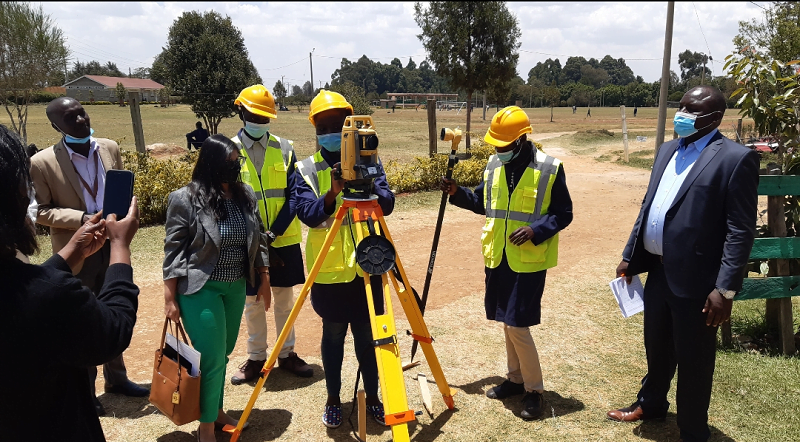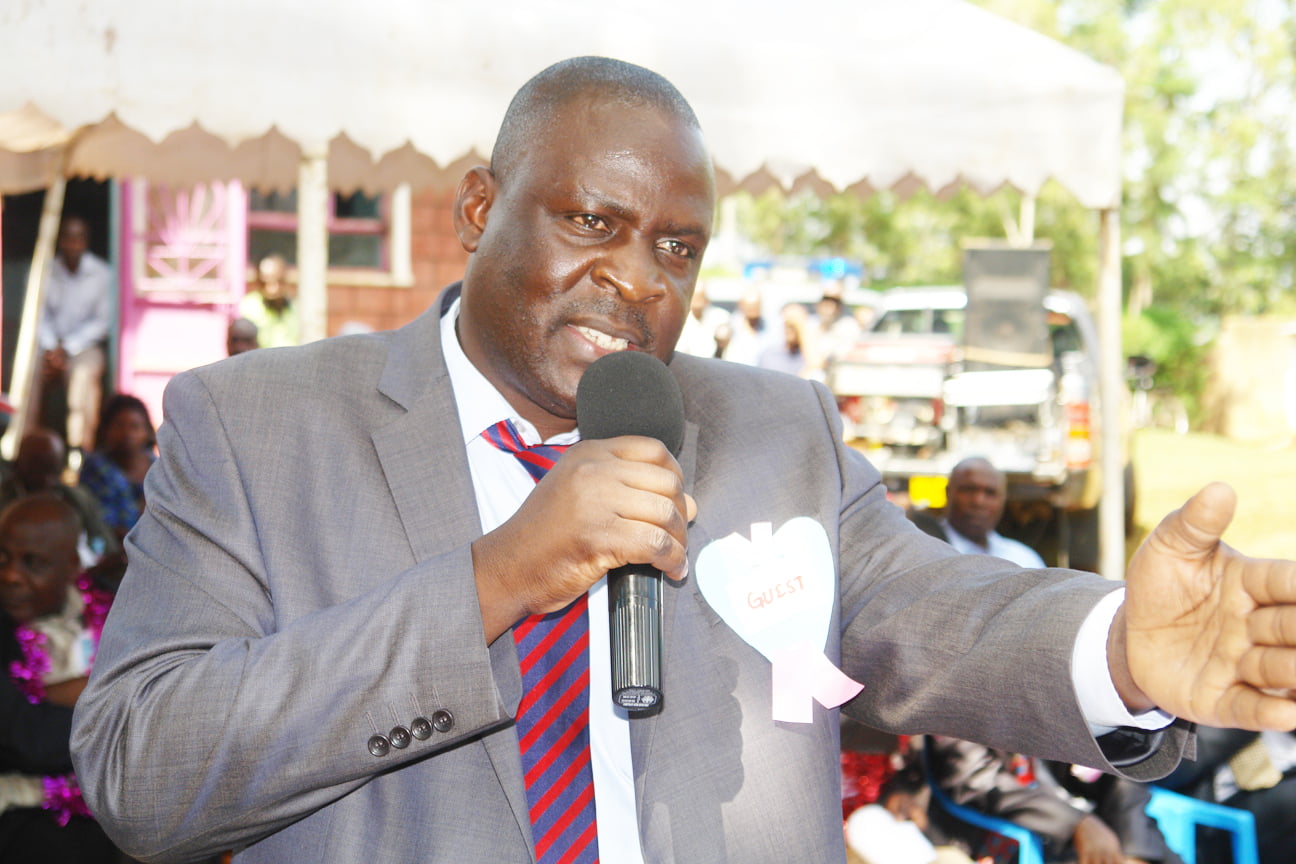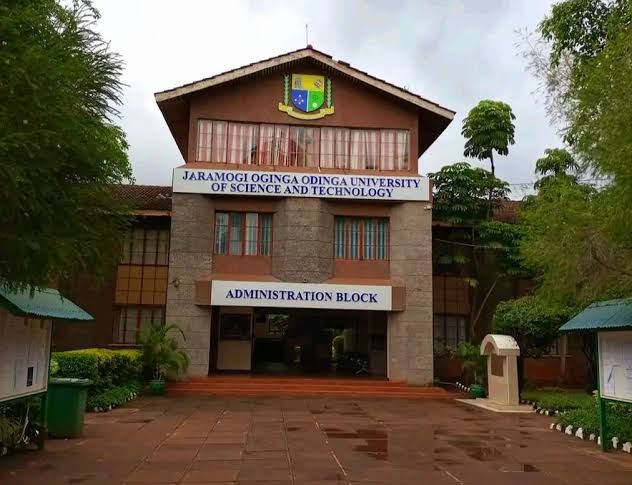By Education News Reporter
The KEFEP and Canadian High Commission teams paid a visit to The Eldoret National Polytechnic (ENP) on 8th March 2022.
The purpose of the visit was to inspect the Kenya Education for Employment Program (KEFEP) implemented by CICan Kenya with support from the Government of Canada.
Shermin Fakirani, the Canadian High Commissioner’s Deputy Head of Cooperation and Joel Oloo KEFEP’s Senior Technical Advisor lead the delegation to The Eldoret National Polytechnic where they were received by Prof Eng. Simiyu Sitati who is the Chairperson to the Governing Council and the Chief Principal, Mr. Charles Koech among other members of staff.
Through bilateral agreements between the Kenyan and the Canadian governments, Colleges and Institutes Canada (CICan) supports a number of programs. Two such programs are The Kenya Education for Employment Program (KEFEP) and Supporting Innovation in the Technical and Vocational Education Sector (SITVES) that the polytechnic has benefited.

Civil engineering Students demonstrating the use of some of the equipment (total station)
KEFEP supports the Government of Kenya’s Vision 2030 to become an “industrializing, middle-income country providing a high quality of life to all its citizens by 2030” and the big four agenda. These efforts—aligned closely with Kenya’s TVET Act and TVET reform strategy—will create a supply of skilled workers to respond to the needs in-demand sectors in Kenya and to ensure that graduates benefit from related economic opportunities either as employees or as entrepreneurs.
Through KEFEP, ENP has developed three CBET curricular programs in Civil engineering center of excellence, specifically: Concrete construction fore person – level 5, Concrete field testing – level 4 and Construction surveying – level 4.
The courses have been advertised for enrolment and have attracted a number of students in all the three courses and is expected to provide a skilled labour and solve the problems of un employment among the youths.
The Eldoret National Polytechnic has also received state of art equipment worth 21 million Kenya shillings to support the implementation of the courses. Besides, trainers in civil engineering have been extensively trained in CBET curriculum development and implementation. The trainers now have the necessary equipment and training to ensure that competence levels are upheld. The practical sessions are now more individualized as students have been able to interact with the equipment and have first-hand experience in the fieldwork done. The Eldoret National Polytechnic is now able to release qualified technical personnel to the workforce who have been adequately prepared to handle the professional endeavors that will be useful both to the economy and the individual students.
To be precise, what this means to The Eldoret National Polytechnic and the community at large is that;
1) The polytechnic will be transformed to a centre of excellence in training survey courses in civil engineering, thus trainers will produce competent male and female trainees meeting the need by the industry and therefore increase employabity of the trainees both in self-employment and gainful employment
2) The polytechnic can offer professional service to the community that creates additional income generating projects leading to self-reliance in running their programs
3) It makes The Eldoret National Polytechnic very marketable and attractive to a large pool of male and female trainees who will contribute to nation building and attainment of vision 2030 and the big four agenda especially in housing and manufacturing.
Canadian High Commissioner Deputy Head of Cooperation Shermin Fakirani revealed that majority of Canadian funding in the education sector goes to TVET.
During the visit, Gender integration in KEFEP project was Discussed. Gender Mainstreaming issues was discussed and the importance in achieving sustainable development in relation to gender equality. It was noted that a good environment that is gender sensitive and supportive to study, work and/or live in is necessary.
Through The Kenya Education for Employment Program (KEFEP) and Supporting Innovation in the Technical and Vocational Education Sector (SITVES) the Kenyan government is supporting gender mainstreaming for sustainable development.
At The Eldoret National Polytechnic Gender committee/GMC has been formed and is the overall organ in charge of gender equality at ENP. While women in technical education (WITED) committee has also been formed. Its main role is to support increased enrolment of female students in STEM courses. These are some of the strategies in gender meinstreaming
The Eldoret national polytechnic has developed a Gender policy and the Sexual and gender based violence work place policy that aimed at enhancing other policies from the government in supporting gender mainstreaming. This is in line with the government efforts to bring gender equality.
Prof Eng. Simiyu Sitati chair to the governing council, thanked the Canadian high commissioner’s office for the visit. He thanked them for the support they have given especially in the development of the competency based education and training curriculum. He reiterated the importance of having graduates with skill that are required in the industry in driving development towards vision 2030 and the big four agenda.
The Chief Principal Charles Koech, thanked the Canadian government, through Colleges and Institutes Canada (CICan) for their support.
“I wish to particularly thank the Algonquin and Durham colleges of Canada for their financial and technical support to TENP. We are aware of what it takes to accomplish all these especially in relation to resources. I also wish to thank the college of LIWA through SITVES and all those involved for their support on the gendering The Eldoret National Polytechnic project” he said as he also reiterated the need for more partnerships in future.






